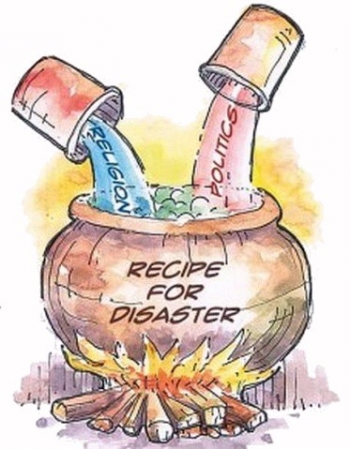
.png) Dr Suresh Mathew
Dr Suresh Mathew

“How can you decide what I eat outside? Tomorrow you will decide what I should eat outside the house? …. Tomorrow they will say I should not have sugarcane juice because it causes diabetes? Or coffee (because it) is bad for health?” These powerful words came from the Gujarat High Court which was hearing a plea against the Ahmedabad Municipal Corporation’s biased action of seizing the street vendors’ carts selling non-vegetarian food.
The Court’s pungent observation could be extended to several other areas where rights of some are considered sacrosanct while others’ rights are trampled upon. The Constitutional provision of right to equality is becoming a dead letter under the present dispensation at the Centre and in several States. The Gujarat High Court’s stringent strictures come as a slap on the face of those who belligerently act against the pluralist polity nurtured over the decades.
The country, in the recent years, has been slipping into a contrived majoritarian view that the rights of some people are more important than that of others. This view is increasingly manifested in dealing with people’s right to belief, and right to decide on what to eat, wear and such other personal matters. If the State interferes in the personal choices of individuals, based on some bizarre political agenda, it is nothing less than a threat to civilized life.
The decision of the Ahmedabad Municipal Corporation to seize the street vendors’ carts was apparently based on the argument that sale of non-vegetarian food is an affront to the religious sentiments of some people. The civic body failed to recognize that the right of non-vegetarians is equally important as the right of the vegetarians. In a diverse country like India, the State and its agencies should not overstep their limits in curbing the people’s right to choose.
We have witnessed similar lopsided logic in removing egg from the mid-day meal of children in many BJP-ruled States. Even by the government’s own survey, every third Indian child is undernourished. Still, some of the BJP-ruled states have taken out egg from the mid-day meal on the curious plea that it is objected to by a particular section of people. The government’s focus is not on the well-being of the ‘people in pain’ but the pressure of the people who can ‘manage vote’.
The syndrome of ‘yes to my rights’ and ‘no to your rights’ has been in full show in the recent attacks against worshipping places and denial of places of worship to minority communities. On the other hand, the nation witnessed the Prime Minister going all out in leading the rituals related to the inauguration of the Kashi Vishwanath Corridor with a lot of fanfare.
We have witnessed similar spectacles earlier too wherein religious events got ‘political colour’ with the blessings of the government. It is good to recollect the words of Jawaharlal Nehru to get the right perspective in this regard: “The religious inaugurations are not governmental. Government of India has nothing to do with it. We must not do anything that comes in the way of our state being secular. This is the basis of the Constitution.” Putting Nehru’s words into practice would be the best way to bring about a level-playing field for every community.